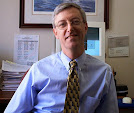After two weeks in
the Hotel Ambassador I celebrated my 18th birthday on July 3, 1945.
Gifts consisted of a bracelet made from silver Bolivars (the currency of the
country), a small silver lighter (my smoking finally acknowledged), and a bottle
of Chanel #5, which was very inexpensive in Venezuela. Grown up gifts, indeed.
My father’s job,
supervising the construction of a dam, was going to keep him out of the city a
lot, so it was important to find more permanent housing for us. We had been invited
to a cocktail party at the apartment of the Legates who lived several blocks
away, he American, she Venezuelan, with the possibility of renting their place.
They were going to be out of the area for a year or so.
Their apartment
building was just off the main thoroughfare going east-west- it was only a few
blocks from the hotel. It was a three-story building overlooking the vast
acreage across the way that would become the University of Caracas.
Ground had already been broken.
It was a very
sophisticated but friendly little party, as Latin parties can often be. Six or
eight people were in the comfortable living room and martinis and snacks were
handed around. My drinking days had yet to begin so I sipped gingerly at one
martini all evening, thinking about how strong and unpleasant it was. My
mother’s nervous monitoring stopped when she saw I wasn’t going to gulp it down
and ask for more. Then we were given a tour of the apartment.
One came up the
stairs (no elevator) and entered the living room, a comfortably-sized room with
good windows, and a large balcony off of it. There was a dining room off the
living room, a small den, bath and two bedrooms down the hall. The kitchen to
the left of the dining room was small and rather primitive (the sound of roaches
scuttling at night haunts me today). Behind the kitchen was a tiny back balcony
facing to the other back balconies in the building and off of it to the maid’s
room. This was a dark little room, comprised of a cot, a chair and small chest,
60-watt bulb and a toilet in a cubicle. A maid did come with the apartment – my
age, I later found out.
We ended the
evening by informally agreeing to take the apartment. In a week we moved in.
During the three
months we lived there I met most of the people who would become my friends in Caracas: American and
British sons and daughters of diplomats, oil personnel and business people,
Venezuelans also, who were connected to various oil companies and others in
less glamorous occupations. I partied and shopped, got into the country club to
swim and thoroughly enjoyed it all.
During my stay
there a revolution occurred. One could hear shooting in the town-proper, and we
stocked up on staples from the little store across the street. It was odd to
hear reports of heavy fighting over the shortwave radio and hear silence for
ourselves. From the balcony we could see lines of people going up the main
street carrying looted items, from art works to toilets. After it was safe to
go out I found a bullet casing on the floor of
the cab I was riding in. It became my souvenir. We saw boy scouts
directing traffic.
In late October we received word from the Legates that they were returning to Caracas and wanted to come back to their apartment and thus we moved yet further out to Avenido Los Caobos Quinta Old Parr, where we stayed until my mother and I returned to the states.
Pictured: View from the balcony, August 26, 1945, Passport photo of Sarah Dawes, 1945.






No comments:
Post a Comment